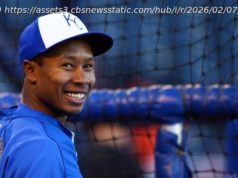College athletes are warned that the NCAA views tournament bracket pools like any form of sports gambling.
As millions of Americans fill out their NCAA tournament brackets and pitch $10 or $20 into office pools, NCAA schools are once again reminding their athletes — in all sports, at all levels — that they are not allowed to participate.
« Remember that wagering on March Madness is impermissible! » VCU’s compliance department wrote on Twitter earlier this month.
« Don’t put your eligibility in the hands of a tournament bracket! » tweeted Maryville University, a Division II school.
« Risk + Reward = Violation, » Seton Hall added .
The American Gaming Association estimates that about $10 billion will be wagered on the NCAA tournament this spring, mostly through casual (and, in most states, technically illegal) bracket pools among friends and coworkers. But while the legal system tends to treat these pools as the equivalent of jaywalking or driving 57 mph in a 55-mph zone, the NCAA describes it — like any form of sports gambling — as activity that « threatens both the integrity of the game and the well-being of student-athletes. »
« We have learned that these types of pools are often the entry for youth to begin betting, » the NCAA wrote in an online statement for its « Don’t Bet On It » campaign . « The NCAA wants to send a clear message that money does not have to be involved in order for the NCAA basketball tournament or other sporting contests to be fun. »
According to NCAA bylaws, there is nothing wrong with filling out a bracket for bragging rights or fun with friends, but the presence of a entry fee and the possibility of earning a prize turn the oft-innocent March tradition into a case of sports gambling. The rule applies to coaches, administrators and NCAA staff, in addition to the more than 460,000 athletes who compete in 24 sanctioned sports.
While some view the NCAA’s stance as entirely reasonable, others believe the organization is too broad in what it considers to be « sports gambling. »
« Things have changed since the time the rules have gone into place, » said Kurtis Brown, a former baseball player at Richmond. « Let’s keep up with the times and be realistic with how these things go. »
Brown is one of the few known athletes to be reprimanded by the NCAA for sports gambling. He and three of his teammates were suspended for about half of last season for what an NCAA spokesperson described to reporters at the time as « (wagering) money on sporting events using gambling websites. »
Brown told USA TODAY Sports that he was punished for betting $20 on a season-long fantasy football league with teammates and putting « $20 or $30 » on an Oakland Raiders game in September 2016. (The NCAA told reporters that the Richmond players’ case « did not include fantasy sports wagering. » A Richmond spokesperson did not immediately reply to a request from USA TODAY Sports to clarify the nature of the infractions.)
« It’s so prevalent in the general public, » Brown said of activities like fantasy football and bracket pools. « I can say this now that I’m out of it, but everybody does it. It’s not considered gambling. It’s just having some fun with friends. »
According to an anonymous survey of athletes conducted by the NCAA in 2016,23 percent of men and five percent of women said they have participated in a bracket pool with an entry fee and prize money. Less than 25 percent of those surveyed said they consider bracket pools to be gambling, even if money is changing hands.
While former Washington football coach Rick Neuheisel was famously fired in 2003 for participating in a high-stakes bracket pool, it’s unclear how many athletes have actually been reprimanded for participating in bracket pools, or how severely.
When asked about the frequency of bracket-pool-related infractions, NCAA spokesperson Emily James referred USA TODAY Sports to general information about the NCAA’s stance against sports wagering and how potential NCAA violations are discovered and enforced.
ESPN college basketball analyst Jay Bilas, who has been an outspoken critic of the NCAA on amateurism issues, told USA TODAY Sports that he is fine with the NCAA’s stance on gambling because it is similar to rules and expectations in professional sports leagues.
MORE: 2018 NCAA tournament: The best games to watch Thursday
MORE: NCAA tournament: What each No. 16 seed must do to beat a No. 1
MORE: Tournament bracket
« It’s not (the same) sort of the hypocrisy as making billions of dollars and claiming that the enterprise is amateur, » Bilas said. « I don’t look at this issue the same way, because you’ve got professional sports where people make hundreds of millions of dollars over the course of their careers, and they’re banned from gambling as well.
« You can’t have the players or coaches have an interest outside of their own interest on the field or on the court.… (But) you want it to be addressed in a reasonable fashion and to be viewed in a reasonable fashion. That’s more the issue. »
Brown, the Richmond baseball player, hopes the NCAA will be more sensible in how it punishes low-money gambling infractions like his. He said « the rules shouldn’t be so hard-lined, » but he also acknowledges that changing them could be « a slippery slope. »
In the meantime, administrators will encourage their athletes to pass on that $10 bracket pool. Instead, they’re left to come up with their own creative ways to bet on March Madness, like the pool being advertised by Vanderbilt’s compliance office.
« Compliance March Madness Pool, » reads a poster on the office wall . « Where the only risk and reward is judgment by your peers. »
Contact Tom Schad at tschad@usatoday.com or on Twitter @Tom_Schad .
Home
United States
USA — Sport NCAA reminds athletes they can only do tournament brackets for fun, not...






